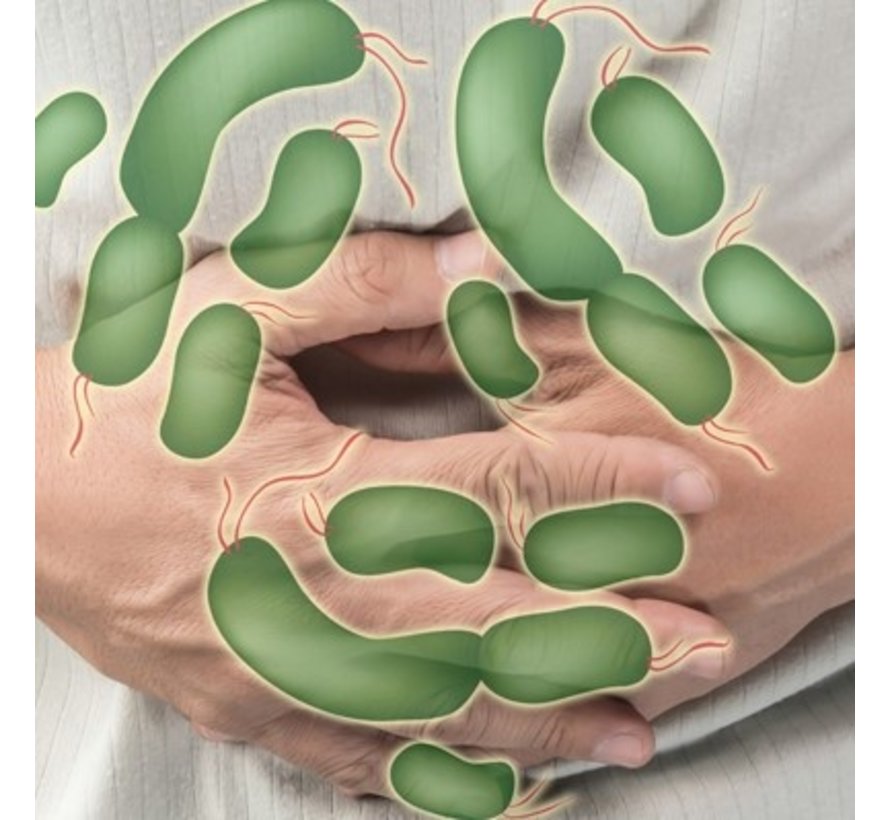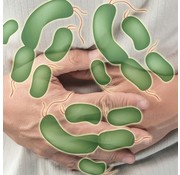Salmonella culture from faeces
Salmonella culture from faeces
The salmonella bacterium causes intestinal infections. The bacteria can be found in raw food of animal origin such as meat, eggs and dairy products.
Infection with salmonella bacteria is common in the Netherlands. Most people develop fairly mild symptoms that disappear spontaneously. The traveller's diseases typhoid fever and paratyphoid fever are caused by a different type of salmonella bacteria that does not occur in the Netherlands.
Symptoms
Not everyone infected with salmonella gets sick. People who do get sick usually get abdominal cramps, are nauseous, have to vomit and have diarrhea. Sometimes people also have headaches, fever or muscle aches.
The time between eating contaminated food and the first symptoms is usually 6 to 72 hours. The symptoms often last 3 to 7 days. The fever usually disappears faster. The symptoms are mild in many people.
For the elderly and small babies, intestinal infections can have a more serious course because they are at greater risk of dehydration.
Salmonella mainly causes diarrhea. People with diarrhea should make sure they drink enough and get salt and sugar. Therefore, drink tea, water broth and sugar salt solution (ORS available at the drugstore).
Contact your doctor if there is blood in the diarrhoea, if there is a high fever or if the diarrhoea has not abated after a week.
Most people become infected with the bacteria by eating products that have not been heated or have been heated inadequately The salmonella bacteria can be found in raw animal foods, such as on poultry meat, veal and pork, or in eggs and dairy products. Salmonella can also be found on fruits and vegetables. You can also get salmonella from your environment, for example from infected (domestic) animals or sandboxes. The chance that people infect each other is small.
Good hygiene in the kitchen is most important to prevent contamination with Salmonella. Follow the storage advice on the products, wash your hands regularly in the kitchen and before eating, and make sure that raw animal products in the kitchen do not have contact with products you eat raw (like salads, some fish). For example, use separate cutting boards and knives for raw meat and raw vegetables. Heat meat, fish and shellfish until cooked.
How often does infection with Salmonella occur?
It is estimated that every year in the Netherlands approximately 30,000 people suffer from a gastrointestinal infection, acute gastroenteritis, caused by Salmonella. Only a small proportion goes to the family doctor and of this group an even smaller proportion ends up in hospital.
Typhoid fever and paratyphoid fever are diseases caused by a type of salmonella that occurs in tropical and subtropical countries. The symptoms of typhoid fever and paratyphoid fever are often more severe than those of the Dutch salmonella infections. About 8 to 14 days after infection people get the first complaints. These are high fever, loss of appetite, headache, listlessness and vague stomach ache. People with typhoid fever often suffer from constipation of their intestines. People with paratyphoid fever often have diarrhoea.
The sample must be analyzed within 24 hours, so try to collect it as late as possible in the day and send it by medical mail before laytime so it will be at our lab the next morning for analysis.




